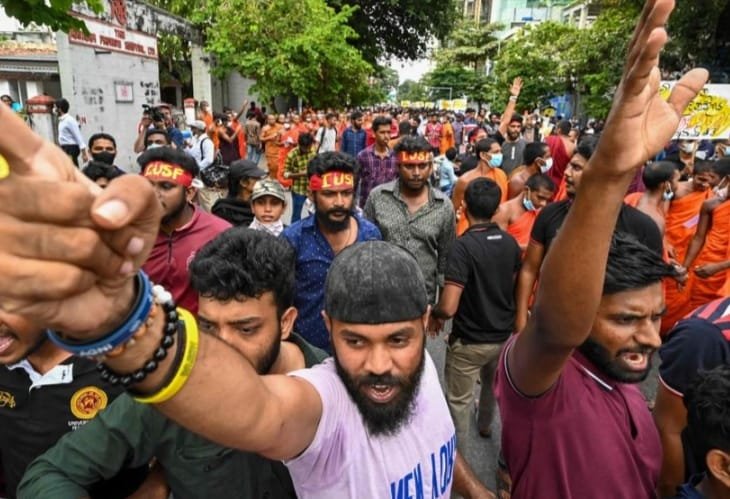
Why it is important anti government propaganda in Srilanka
Anti-government propaganda can play a significant role in promoting transparency, accountability, and critical thinking within a society. Here are a few reasons why it is important:
1. Checks and Balances: Anti-government propaganda can serve as a check on government power. It can help uncover corruption, abuse of power, and violations of human rights. By questioning and challenging the government’s actions, propaganda can contribute to a system of checks and balances that prevents the concentration of power in the hands of a few.
2. Freedom of Expression: Anti-government propaganda is often a form of expression protected by the right to freedom of speech. It allows individuals to voice their dissenting opinions and hold their government accountable. This freedom is essential for a healthy democratic society, as it encourages open dialogue and debate.
3. Awareness and Information: Anti-government propaganda can raise awareness about important social, political, and economic issues. It can expose hidden agendas, biased policies, and government failures. By providing alternative perspectives and information, propaganda can help citizens make informed decisions and participate actively in civic life.
4. Democratic Discourse: Anti-government propaganda can stimulate public discourse and encourage critical thinking. It challenges the dominant narrative and fosters a diversity of opinions and ideas. This dialogue is crucial for a thriving democracy, as it promotes the exchange of different viewpoints and leads to more robust and inclusive decision-making processes.
5. Catalyst for Change: Anti-government propaganda has historically played a role in social and political movements. It can inspire and mobilise individuals to take action against perceived injustices or oppressive regimes. By galvanising public sentiment, propaganda can be a catalyst for positive change and reform.
It is important to note that while anti-government propaganda can be beneficial in certain contexts, it can also be misused to spread misinformation, incite violence, or undermine democratic institutions. Therefore, critical evaluation and fact-checking are essential when engaging with any form of propaganda.






